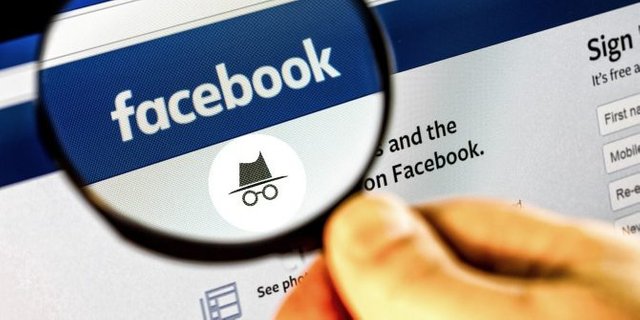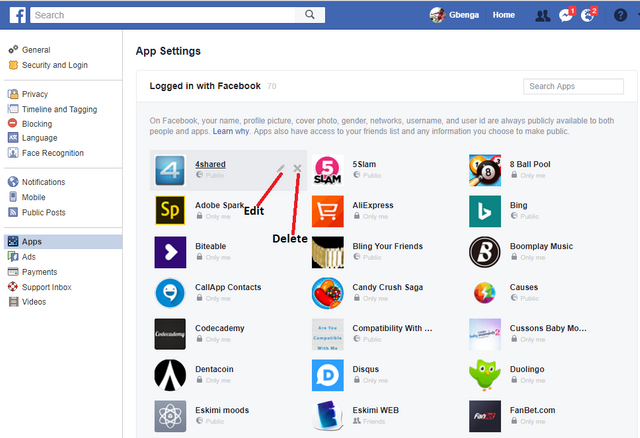
One of the things that were revealed by the Cambridge Analytica scandal is how we give up our personal data without noticing on social networks. It only took a seemingly innocent personality test for hundreds of thousands of people to agree to surrender their personal data without knowing it, which allowed this company to harvest the information of 50 million US citizens.
For that reason, today I am going to explain how to know which third-party apps have access to your personal Facebook information, and how to prevent them from having it to keep them from tracking everything you do on the social network. And, among the data you can give to third parties is not only your friends list or personal information but your photos or clicks on "Like" that can help companies know what your ideals are.
A few years ago, Facebook even allowed these applications to access the personal data of your friends, but after modifying the API in 2015 they now have to settle for a simple list of these friends. However, they can still access a large amount of data, although fortunately a quick and simple process has been created to limit this.
Sometimes, when you connect to an application with your Facebook account from your computer's browser, you may be able to choose the information you share as it happens when you install apps on Android. However, this process is quite automated in mobile, so it is possible that you are yielding much more data than you think. These are the data that you may be giving.
Public profile: It is usually the only mandatory personal data to be able to use the applications, so you can not deactivate it. This is your public profile, with your name configured, your profile picture and other information such as your age.
Friends list: It's your complete friends list. When you have activated the option to share it, the companies behind the applications you are using may know the names of your Facebook friends. This list is often used by applications to search your Facebook friends on them.
Birthplace and the current city: With these two options activated, the application can know in which locality you grew up and which city you live in now. This data will be obtained from your profile, so it will depend on the information you have filled in on Facebook.
Photos: Some applications will also require permission to obtain your photos. This is necessary, for example, to be able to use the photos you have on Facebook in an app. Thet will get both the photos that you have uploaded and the ones where you have been tagged.
Clicks on "Like": Maybe one of the most valuable data you can give to a company. Knowing what Facebook posts or other websites have given me like, a company can know your political inclinations or what you think of certain issues. This is the information that supposedly Cambridge Analytica used to make false news with which to manipulate the mentality of certain people.
Personal description, date of birth or email: These are three different options that may be active, and with which you will assign to the company data that you have set up on Facebook as your birth date or email. Also the personal description, something that can help companies know how you see yourself or what things you like.
How to know which third-party apps have access to your information

Facebook has a menu that lists all the applications in which you signed in with your account, and that therefore access your personal data. To access it, open the drop-down menu, and inside choose the Setting option to enter the panel where you can edit your account settings.

Once you're in the setting panel, in the left column choose the Applications option. Once you do, you will be shown a list of all the applications in which you have used your Facebook account to identify yourself, and to which you have given permission to access your personal data.


From here you can go delete the apps that you no longer use. However, if you are curious to know what type of data each one accesses, mouse over one of them; two option icons will appear on the right. Click on either the Edit option which you will see with the pencil icon or the Remove option with "x" icon. If you click on the App, a screen will open in which you can manage the data obtained by each application.
How to limit access to your personal data
When you enter the configuration of one of the applications with the previous step, a window like the one you see will open. In it, you can check what data access each application, depending on each of them can be more or less.

If you look, apps like Eskimi Web automatically get permission to harvest a large amount of data. That means that everything else you see on the list you're giving away unnecessarily, from the information on the posts that you like to your photos or your list of friends.
Precisely to prevent the application from collecting unnecessary data but you can continue to use your Facebook account in it, in this box you can deselect all the data you want to stop sending. Once you have deselected all you want, click on Save and the changes will be applied, from now on Facebook will cease to transfer the selected data.

Unfortunately, this process does not delete the data that the app has already collected about you, and Facebook does not give you a solution to delete them since you have stopped depending on them. The only thing you can do is to contact each developer individually and formally request that they should delete your data.
Congratulations @gbengard! You have completed some achievement on Steemit and have been rewarded with new badge(s) :
Click on any badge to view your own Board of Honor on SteemitBoard.
To support your work, I also upvoted your post!
For more information about SteemitBoard, click here
If you no longer want to receive notifications, reply to this comment with the word
STOPDownvoting a post can decrease pending rewards and make it less visible. Common reasons:
Submit